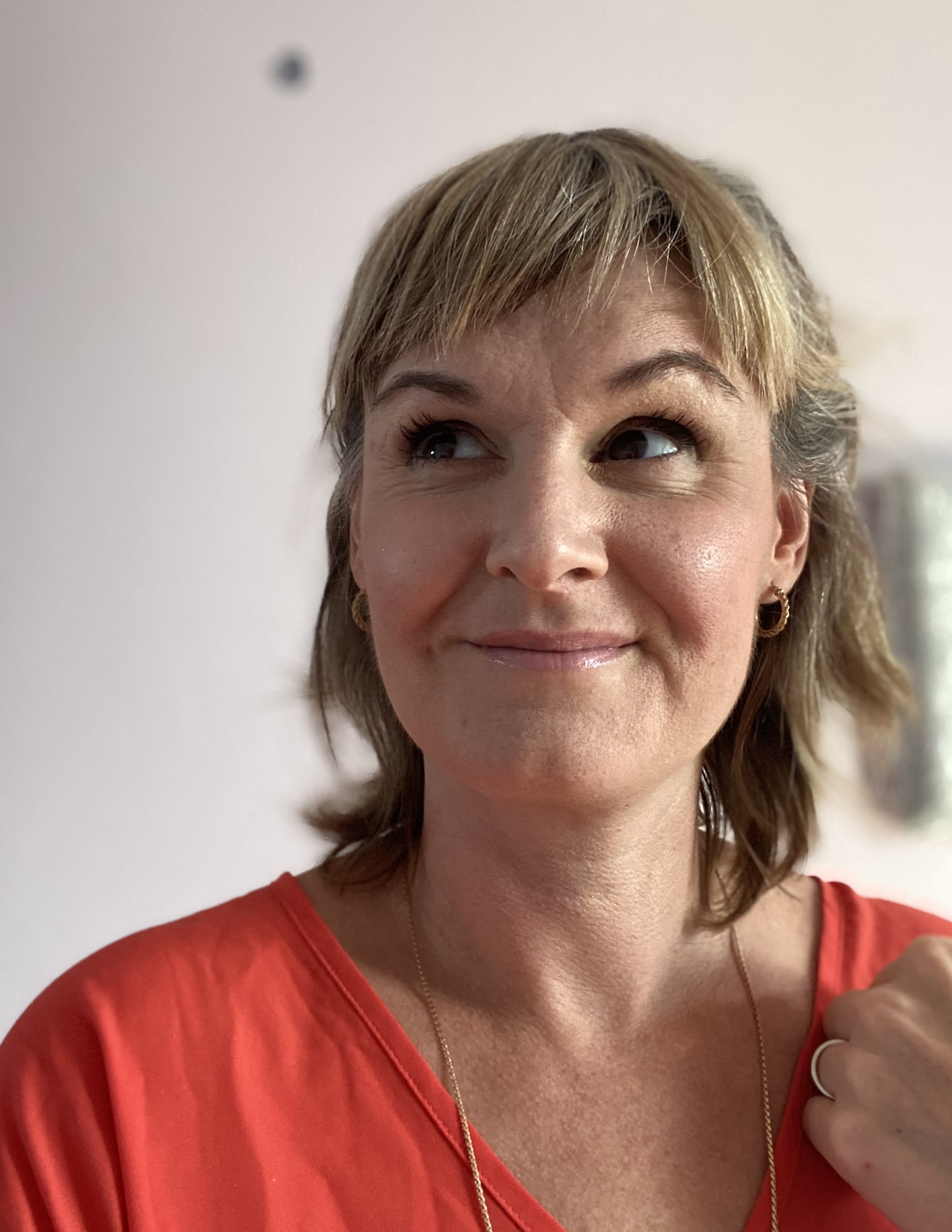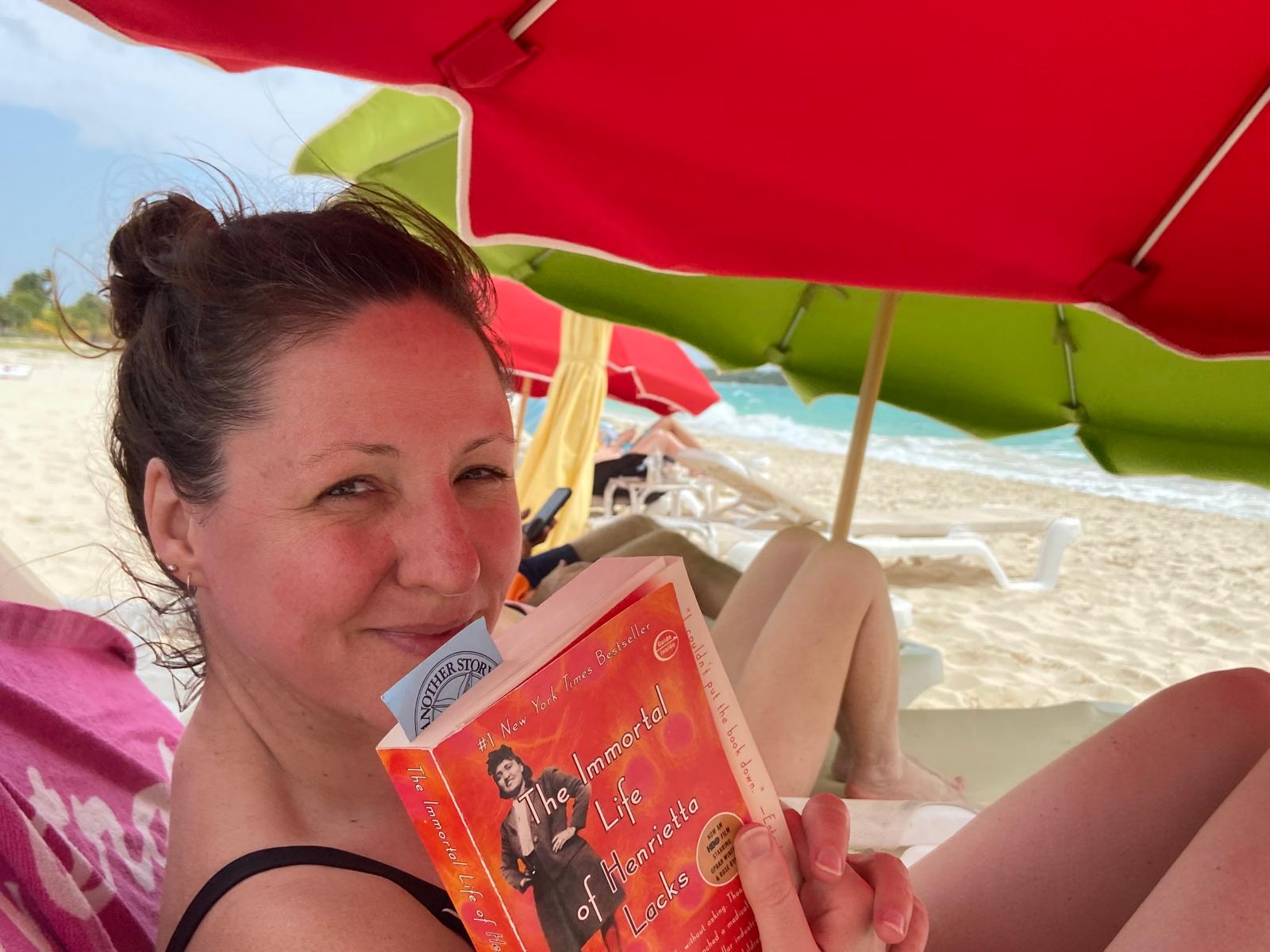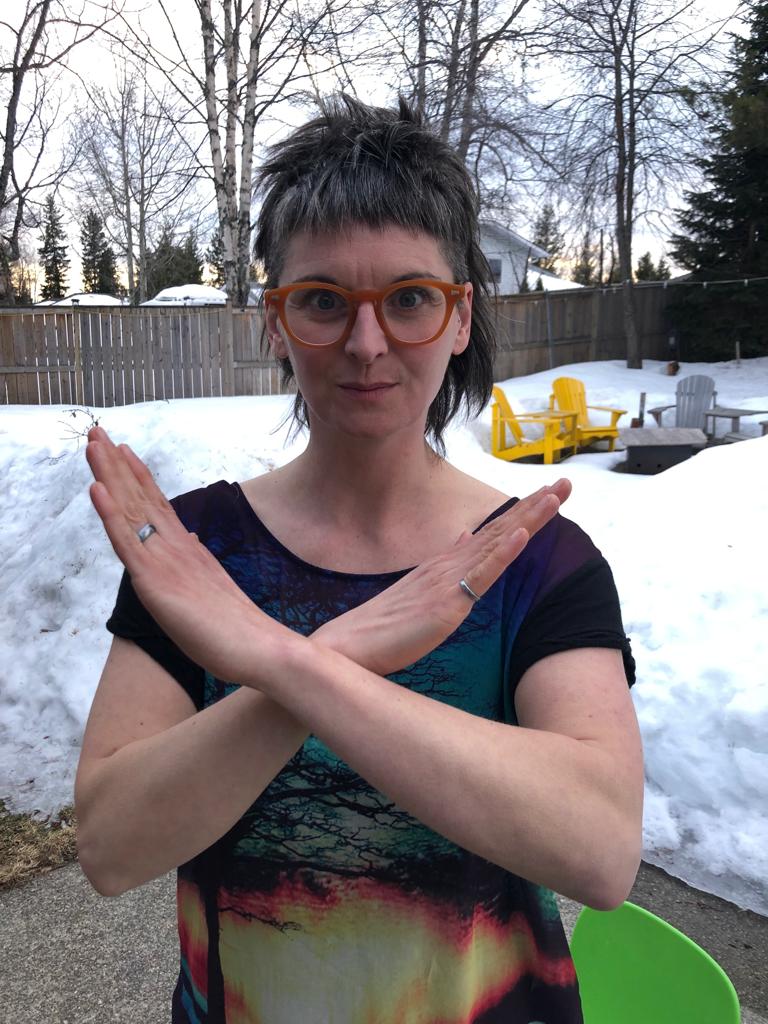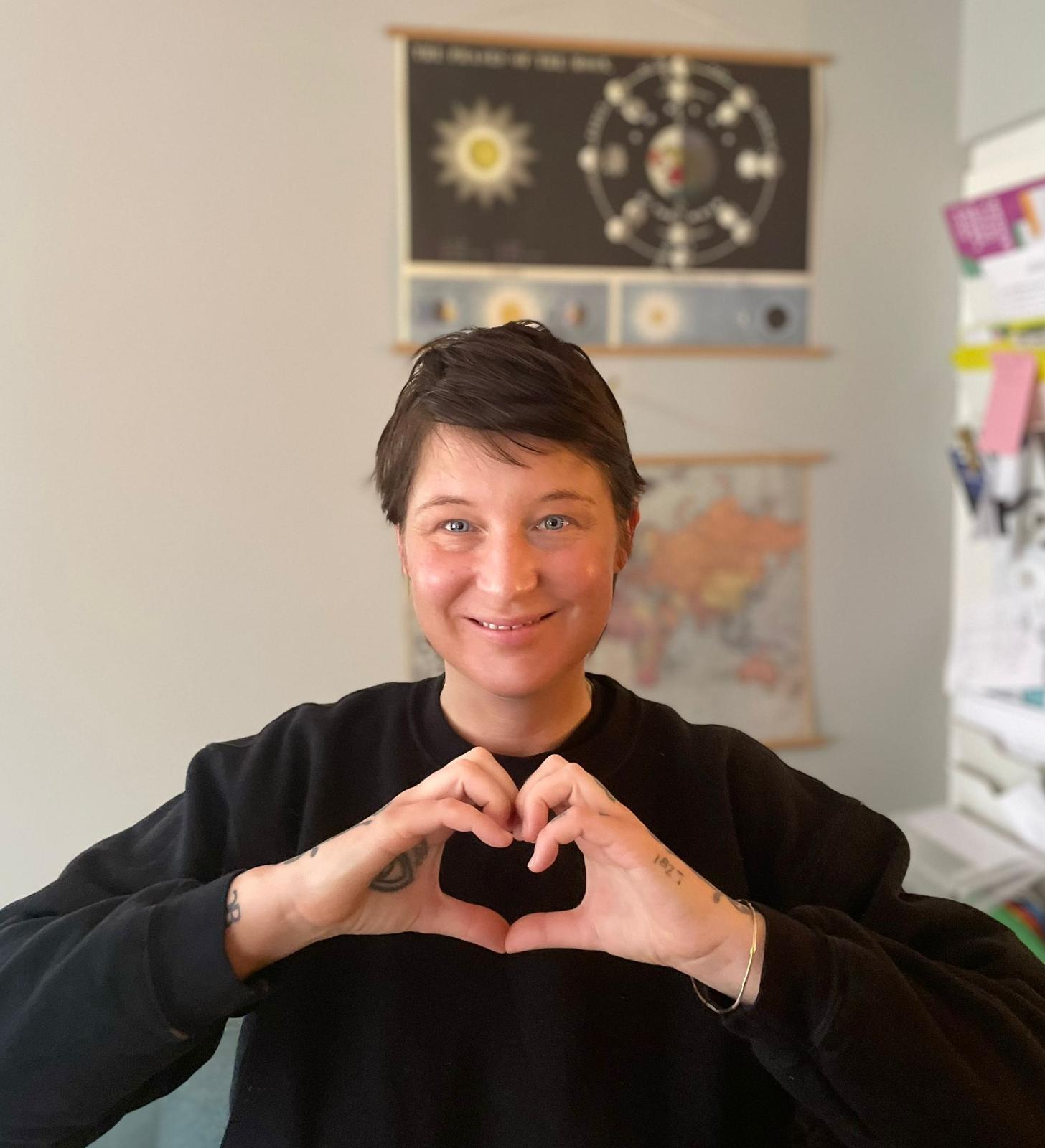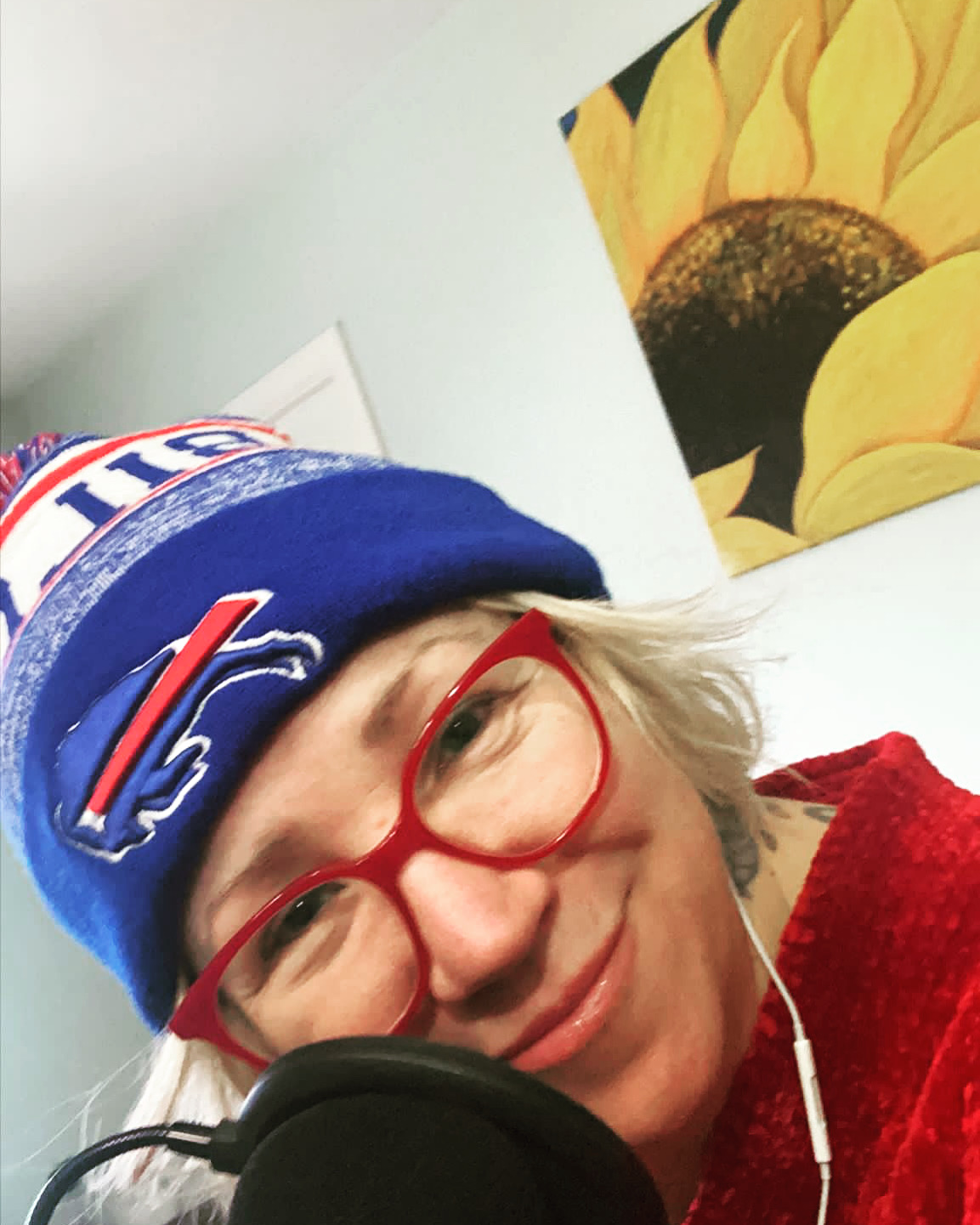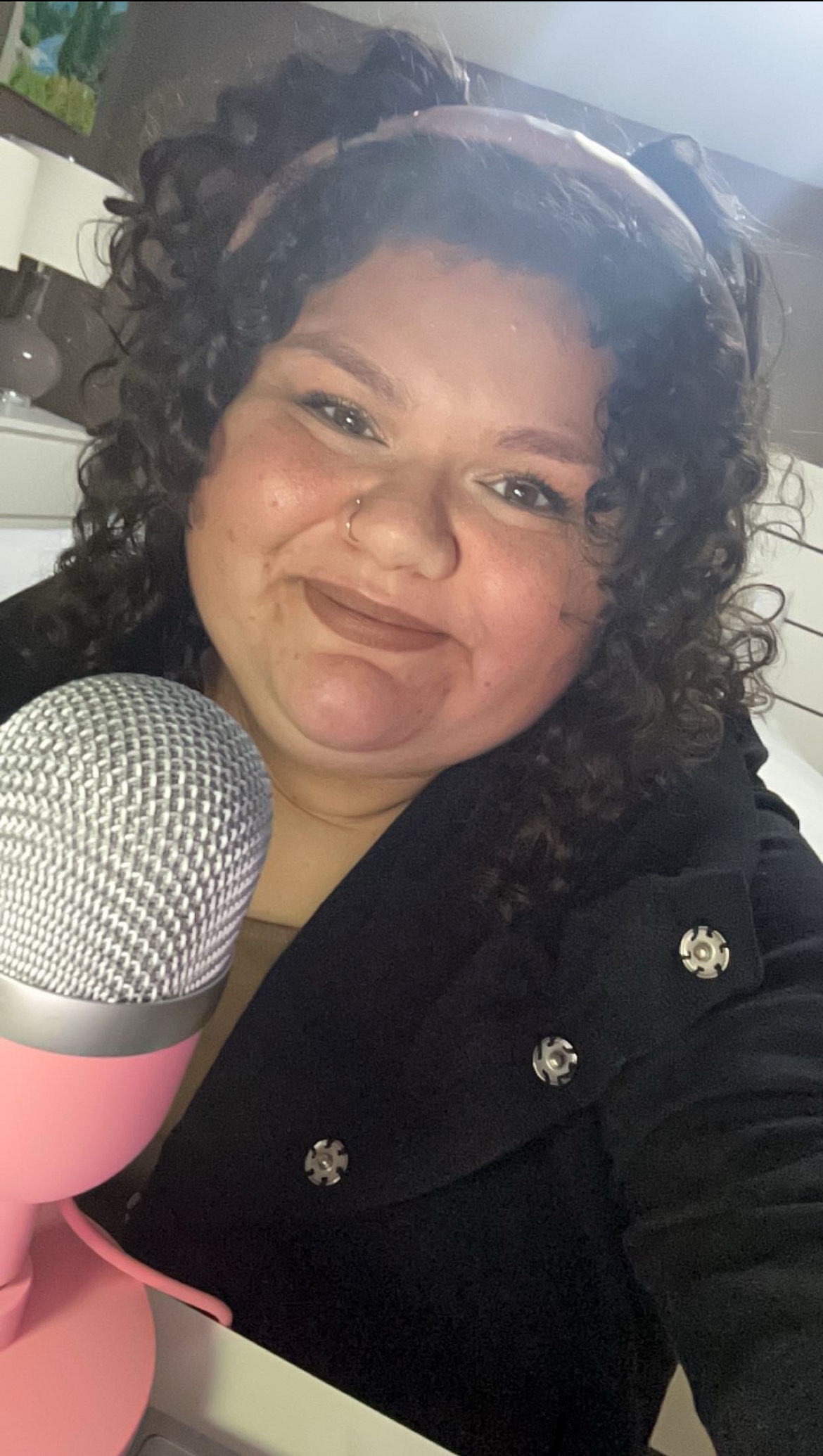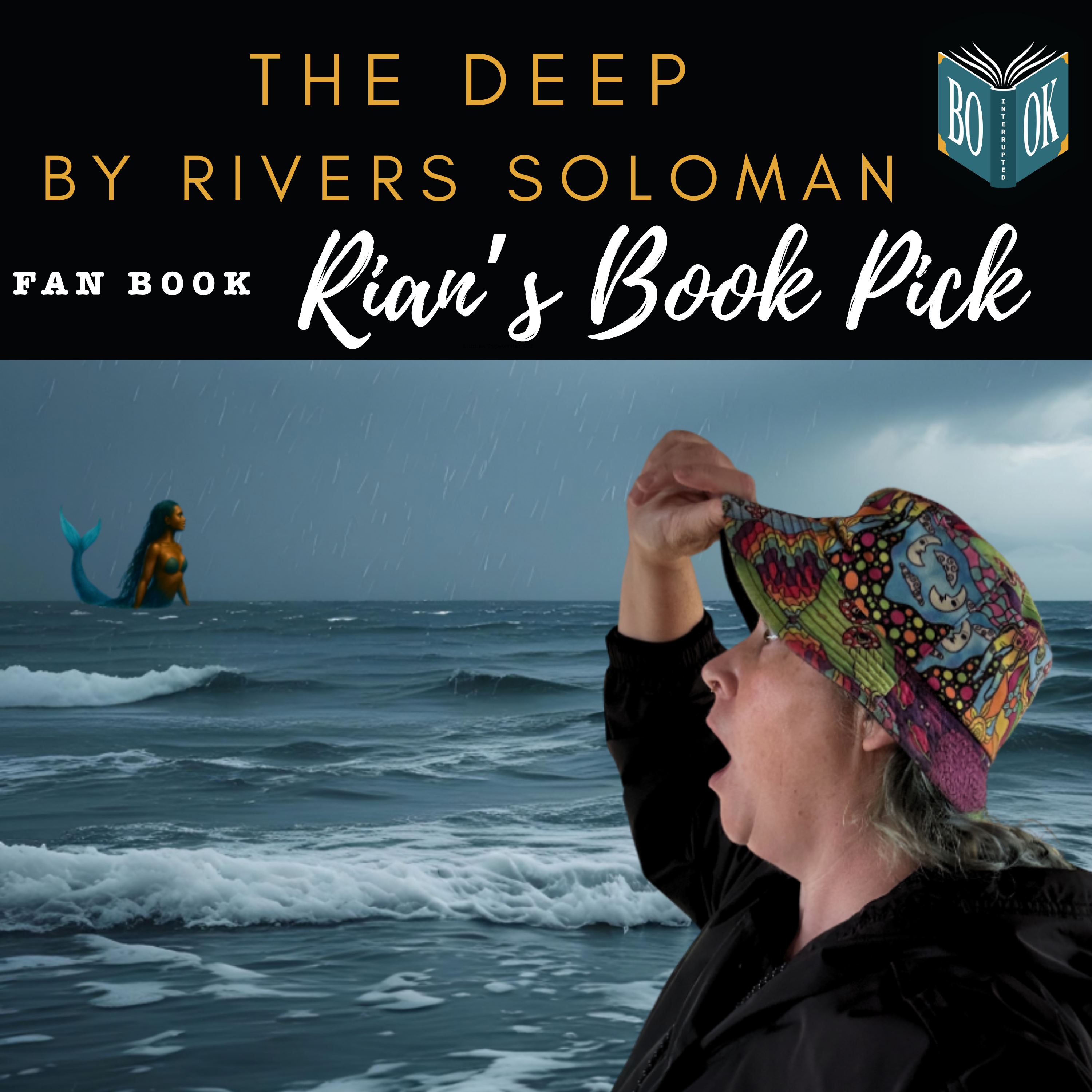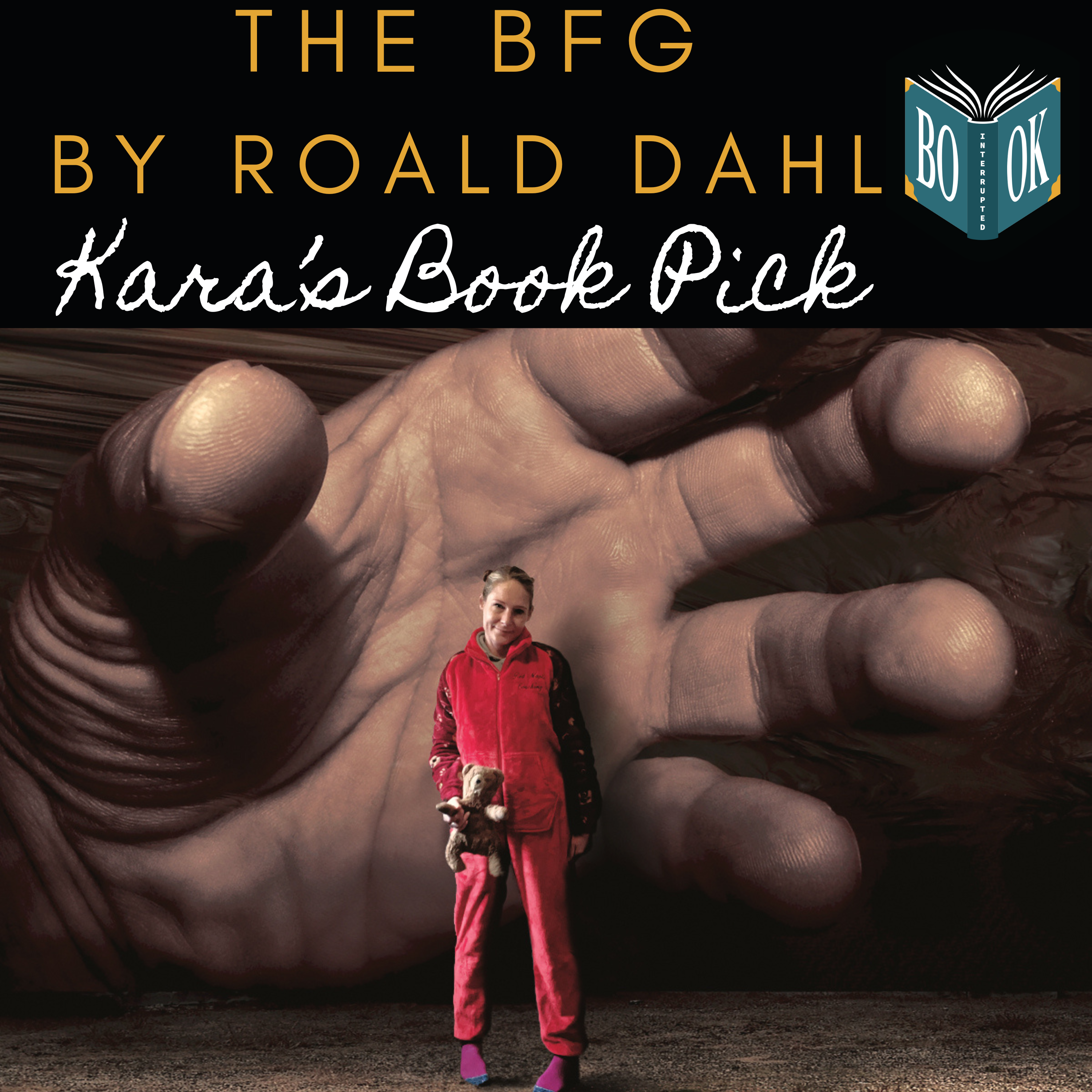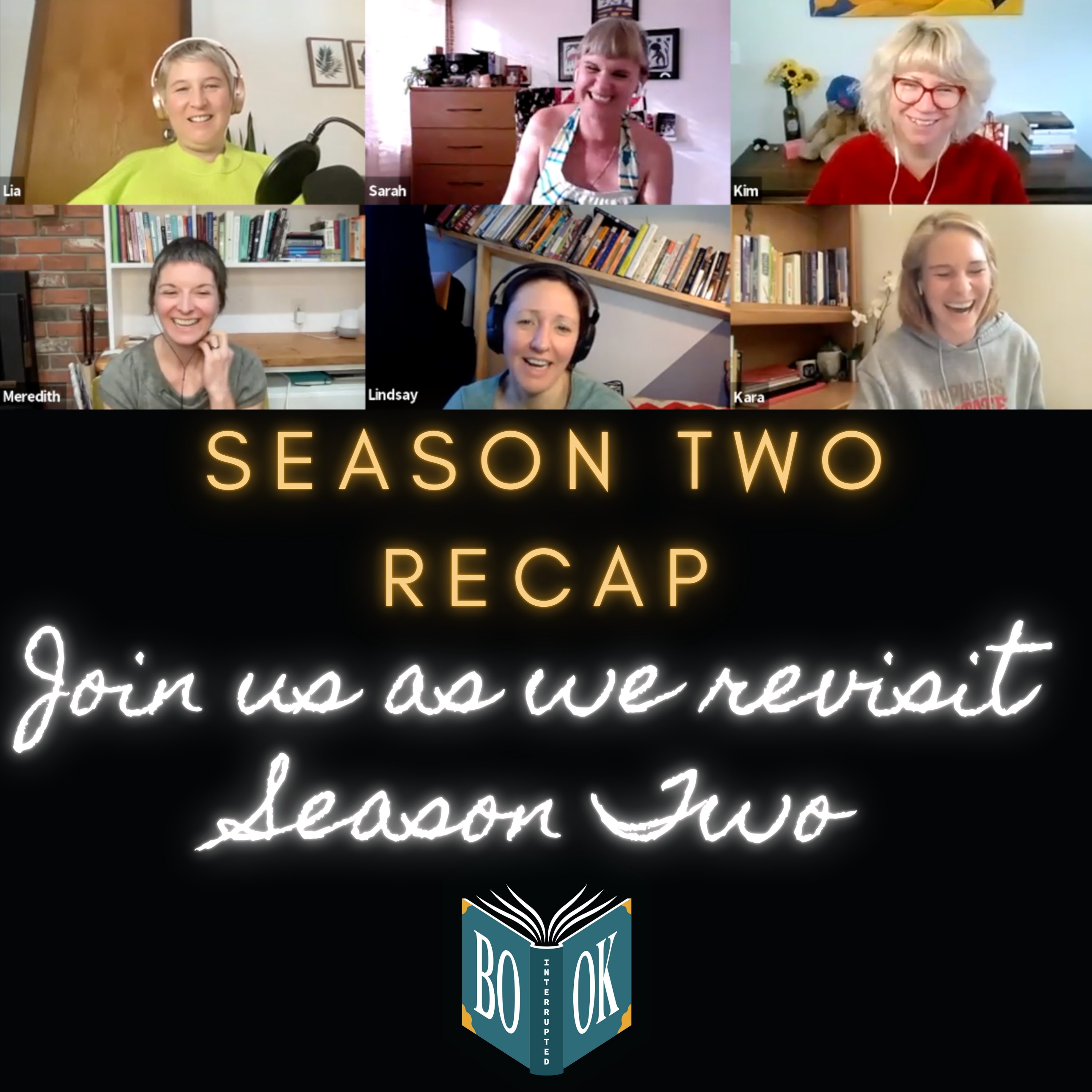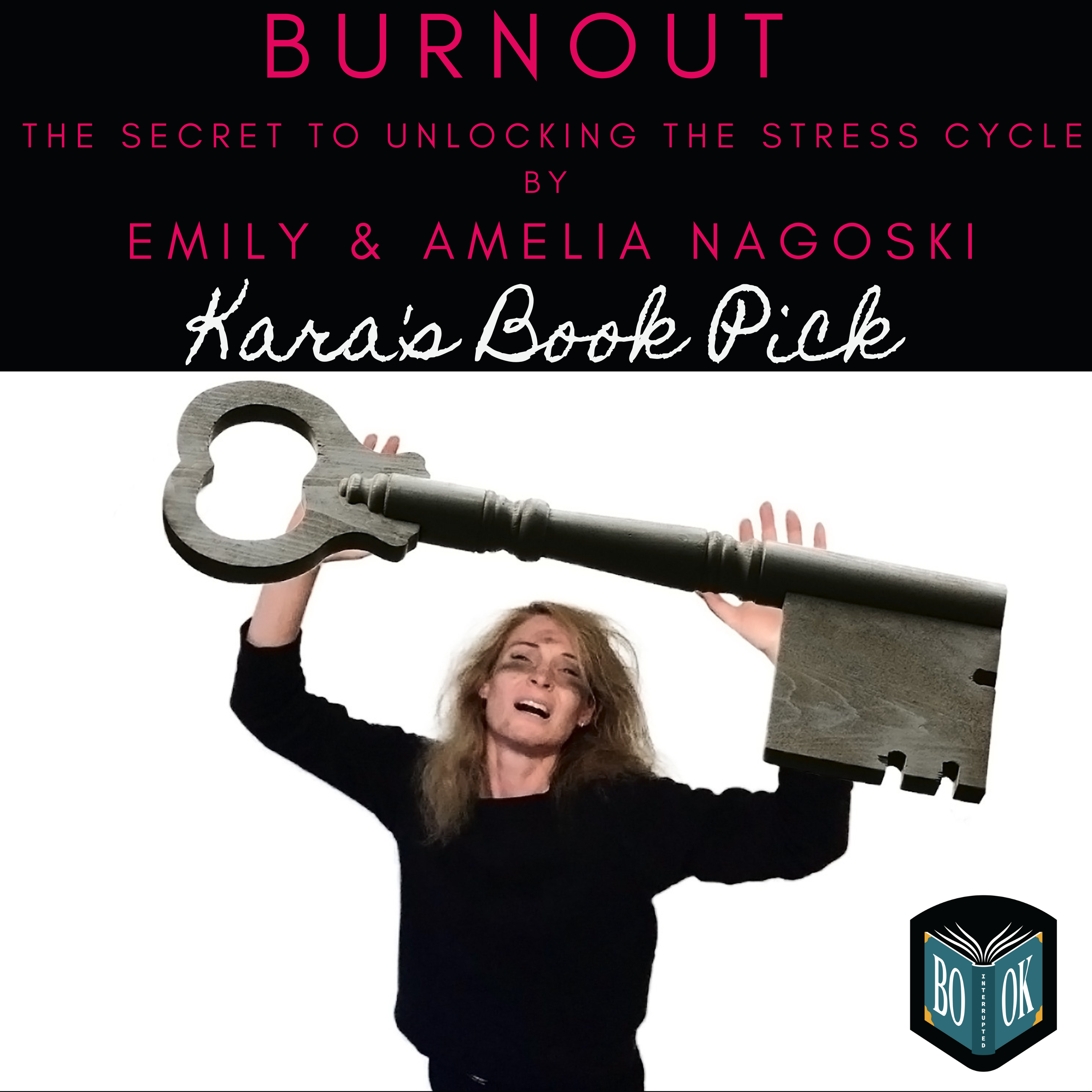[00:00:00] Speaker A: Book Interrupted Chronicles captures some of our favorite and funniest moments together from before.
[00:00:05] Speaker B: We were all in the club.
[00:00:06] Speaker A: If you would like to know who felt clothing was optional at the theme park or which member flipped the script on her birthday surprise, go to www.bookinterrupted.com unpublished to start your free trial to where our chronicles and inklings live. Trust us, you won't regret it.
[00:00:23] Speaker C: Parental guidance is recommended because this episode has mature topics and strong language.
Here are some moments you can look forward to during this episode of Book Interrupted. I'd like to welcome Rianne, who's our fan for this book pick.
[00:00:38] Speaker D: That's why I picked it because it's just so deeply embedded in feminism and also just thinking with histories and so it's just totally my thing and they're just happy.
[00:00:53] Speaker B: Go lucky. You're like, why do you get to be happy? Go lucky. And I'm tortured by the past.
[00:00:57] Speaker A: You know, someone telling a story from afar instead of it felt like it should have been really personal. So. But it may just be me and the audiobook thing.
[00:01:04] Speaker C: I don't care how dark it is, as long as the end is happy, I can manage it.
[00:01:09] Speaker B: Just tell me it's gonna be good ending.
[00:01:10] Speaker D: But I also think that there's something about that way of telling story that itself carries history and carries meaning.
[00:01:17] Speaker B: Guaranteed you will be in a room and the person that you're talking to who's in charge just wants you to tell them how great they are, not what they're doing is going to cause disaster.
[00:01:27] Speaker A: Anyway, do you know what I wrote? What book I wrote? This reminds me of Sarah. You can guess. The very first one. Let's throw back to the very first book, Women who Run with the Wolves.
Women who Run with the Wolves.
[00:01:40] Speaker D: Yeah, yeah, yeah.
Without it.
[00:01:54] Speaker A: Mind, body and soul, information is the time trying to learn something new without being disrupted.
Mind, body and soul inspiration is with us and we're gonna talk it out on Book Interrupted.
[00:02:17] Speaker C: Welcome to Book Interrupted, a book club for busy people to connect and one that celebrates life's interruptions during this book cycle. We're reading the fan book pick and joining us is Rianne and her book the Deep by River Solomon.
The Wajanu water dwelling descendants of pregnant African slave women thrown overboard by slavers, live idyllic lives in the deep. Their past, too traumatic to be remembered regularly, is forgotten by everyone except one, the historian Yetu.
The memories are painful and wonderful, terrible and miraculous. But they are destroying her.
So she flees to the surface, escaping the memories and the responsibilities to discover a world the Wajinu left behind long ago.
Let's listen in to this episode's group discussion.
[00:03:07] Speaker A: Hi.
[00:03:08] Speaker C: So welcome to the fan book. I'd like to welcome Rianne, who's our fan for this book pick.
Hi, Rhianne. Why don't you tell us what book you picked and we can go from there. Thanks for being on the show.
[00:03:19] Speaker D: Yeah, thanks for having me. This is so fun. I'm so happy to be here, even though I have a very. A very bad cold right now. So ignore me if I cough or do random sounds. I apologize to everyone listening.
So I picked the Deep by Rivers Solomon, and I alluded a little bit to this in the book report, which you'll probably hear later. But I picked the Deep because I tend to be drawn towards books that have feminist and queer theories in them and books that are fantastical or have some kind of otherworldly ideas in them. I'm not always drawn to science fiction, but this one was just too good to pass up. So I found this book because I listened to the clipping musical piece, which is where the idea of this book grew from. Originally from Draxia and then the clipping. We can talk about that later. But. And then I listened to that and thought, oh, I have to read this book. This book is amazing. So, yeah, that's why I picked it because it's just so deeply embedded in feminism and also just thinking with histories, and so it's just totally my thing.
[00:04:37] Speaker A: I'd like Brienne to talk a bit about. You said we'll get back to it, but I'd love you to go into a bit more detail about how this book came about, because I think that is a really interesting, you know, creative idea. So I don't know if you'd like, touch on that.
[00:04:52] Speaker D: Yeah, yeah, yeah, I can do that. Should I do that right now?
[00:04:55] Speaker C: Yeah, yeah, please.
[00:04:56] Speaker D: Okay.
It's been a while since I've looked at where it came from, but you can find where the original idea for the story of the Wajinru came from.
I don't know if they're called the Wajinru in the clipping piece, but this idea of the unborn children of slave mothers who were thrown overboard during the transatlantic voyage.
Pregnant mothers, because they weren't worth the resources. And it's a pretty commonly known thing that has happened. I think if you read any history about the transatlantic slave trade.
So Drexia is. I don't know if they're hip hop. I don't know if they're like house band, but they do a lot of music. And they created this and crafted this sort of world.
And I haven't actually listened to that piece in a while, so I don't want to speak to that piece. But the Clipping took that idea and created a song from it. A whole poem or clipping, not the clipping. And actually one of the artists in Clipping reads the audiobook for the Deep.
[00:06:00] Speaker C: Oh, that's interesting.
[00:06:02] Speaker D: Yeah. So it's not River Solomon that reads the audiobook. It's.
I can't remember his name.
[00:06:07] Speaker C: David. Daveed something, right?
[00:06:08] Speaker D: Daveed. Daveed.
[00:06:09] Speaker C: David, yeah. My son's name is David.
[00:06:11] Speaker D: Daveed Diggs. Daveed Diggs, I think. Yeah. And so he reads the audiobook, which is amazing. And there's a piece in the audiobook at the end where he talks about where the histories of this story came from. So I find it so interesting because not only is the book itself about thinking with the histories, the painful histories and memories of where they came from, but also the story itself has histories and a flow through different mediums and through different ways. So this book, to me is just. And it's a novella, it's not a full novel, so it's a bit of a shorter book, but it just kind of grew out of something really small. And then it just. It just kind of keeps going. It's so fascinating to me. I think as a musician, I was really drawn to that because art often grows out of other art pieces and out of other people's work. We often work off other people's work.
[00:07:07] Speaker B: Actually, that goes along with one of the quotes I wrote down from the book.
[00:07:11] Speaker A: Yeah.
[00:07:11] Speaker B: Not just the art, but at the end, after she's shared the history amongst all the people, her mother or their mother, whatever you want to go, interpreted the memory, the history, different than she did. And so it also shows that who you are is part of the history as well. And how you interpret the history can changes from individuals, which is why it's nice that it's shared rather than just one person, because she just having one person interpret the history. There's something lost that also gets in this story as well. The history got built on to. Because depending on who was experiencing it.
[00:07:51] Speaker E: Or remembering it as well.
[00:07:53] Speaker A: There you go.
[00:07:54] Speaker B: What had seemed certain to Yetu wasn't so immutable. The living put their own mark on the dead. How had she missed it anyway? That's what you're saying, though?
[00:08:04] Speaker D: Yeah, it carries through. Right. And it changes. Memories and histories change and Flow for me. I was telling Sarah, and I think I wrote that in the book report that when I read this book, I read it shortly after my brother had died. Meredith, you remember that. That was chaos time in my life. And I was kind of co parenting his four children, especially the younger two.
A lot of what I did was sitting with them and just telling them stories and memories of daddy and what he was like. And they still ask. They're not 2 and 4 anymore, they're 6 and 8. I know, right? They grow so big so fast. And then the older ones are like older teenagers, but the younger ones still ask if they're having a sleepover at bedtime. They're like, tell us a story. Tell us about Daddy. Tell us what he was like. Tell us what he did. Tell us. Even though it's a painful thing sometimes to sit there and reflect on for them because they. They often say, oh, I really miss Daddy. I never got to know that about him. I think it's so good to hear those histories, but I put my own reflection on it. So I always tell them, like, you can ask our other siblings, like your aunties and uncles and aunties, like, what they remember as well, because we all put our sort of spin on our history and our memories. But for me, that idea of carrying pain through memory and remembrances, that's what draws me to this book so much. Especially because I was processing so much grief and still process grief when I read this book. Because this book talks so much about the pain of remembering.
And often when you're going through loss, it's really beautiful, but also extremely painful to sit and think about the person or what you've lost in that moment. This book for me was just that, like. Like this is painful, but also beautiful. And something new comes from this.
[00:09:57] Speaker A: That was lovely.
You made me think higher of the. Yeah, I think it's different. It depends. I've always said this, that books depends on where you are in your life and how you interpret it and read it. And some books you read in certain times of your life and you're like, I can't read this. You put it down. Then another time you're like, oh my God, that was the most moving, important book in my life. So it sounds like this book was. Came at the time that you needed it. And I love that about books in general. We've talked about that before too, that we all love reading books, but specifically too, because they just come to you at the time that feels like the right time. It helps you heal or Helps you laugh when you need it or whatever. So that's so nice.
[00:10:38] Speaker D: Yeah, that's so beautiful. I love that. It's so true. Right. Even this summer, like, I read some books that were very much aligned with where I'm at right now. So it's so cool. I love that. Books do that for us. So amazing. And then when you return to them, if you read them a second time or a third time, different things come forward, which is so interesting. That's what I found about this book because I read it originally three years ago, and I really aligned with those ideas of the pain in those memories and. But this time when I read it, especially the first whole section of her carrying so much weight and having all of those memories placed on her and being picked at a really young age to be the. I forget the title she carries, but.
[00:11:19] Speaker B: Historian.
[00:11:20] Speaker D: Yeah, historian. That's right. Yeah. She's the historian. And she has to carry those memories. And that's her life now. There's no other life. Because I grew up in a fairly high pressure household where as the oldest child, myself and my brother actually, who passed away, who died, he and I felt that pressure. Our younger two siblings, not so much. But this time around, when I read it, what really stood out to me was that pressure that she feels. Not so much the grief and the pain and the memories, but so much more the pressure. Because I'm in a completely different space two years later. Yeah, it's so cool that you said that, Lindsay. That's something that I find about books like this, that have a lot of richness to them, that they bring forward different things at different times. When you reread them, something completely different stands out for you.
[00:12:06] Speaker C: Yeah, for me, it was more about belonging. That's what it felt like for me. But maybe because when I read this book, I was away from home, staying in someone else's life, but at my mother's house, I belong there. But this feeling of being away and stuff. So that's the theme that got me was the feeling of belonging and knowing who you are and what your histories are and culture and what feels like home and that kind of thing. But at the same time, I just want to put it out there. So it's a novella and you think you're going to read it fast. I did not find that at all. Not at all. It took me forever to read this book. I'd read a little bit and put it down and like, days would go by before I pick it back up again. Like it wasn't One of those books where you're like, can't wait to get, like, see what happens. Like, it's not. That's not the book.
[00:12:53] Speaker B: I had the opposite experience.
[00:12:55] Speaker C: Really. No.
[00:12:56] Speaker B: Because I was again, visiting mom, had everybody had gone, then this big long road trip across the country to go visit. And it was like my life was just go, go, go. There was like, not a lot of time for just doing stuff for me because I was visiting people and then my husband wasn't there for part of it. So, like, I was the main parent and stuff. And I was just dying to just be able to sit for five minutes and read. And I just couldn't get back to it because I was either driving or visiting or whatever. I did end up reading it. We end up rented a. Like a cabin, as they say in B.C. and in Ontario, they say cottage.
And I got an opportunity to actually read the book. And I read it, like almost the entire book in a couple days because it was also short.
[00:13:39] Speaker A: I listened to the audiobook with my partner. We were driving to Montreal. Rhianne, you don't know this about me, but this would be the only. The second audiobook I've ever listened to in my life. Yeah, the first one was also for Book Interrupted, because I was trying to fit it in. I have a quite busy life, so we were trying to fit it in. We. We listened to. Made him listen to the other one on the way to and from Montreal. His mom lives in Montreal, so we were doing that. But I'm still struggling with the audiobook thing. And I know that the narrator is part of the, you know, I guess he was one of the singers. He's also an actor, a pretty famous actor. But it really bothered me that he was a male voice telling the story.
So the whole way I felt like it was like an outsider telling the story of Yetu. That's her name, that Yatu.
[00:14:29] Speaker B: Yeah.
[00:14:29] Speaker A: So it felt so disjointed to me. Like I, you know, I didn't really get as much out of it as you guys did. I feel like it just always just felt like it was like a someone telling a story from afar instead of. It felt like it should have been really personal. So. But it may just be me and the audiobook thing, but I just really didn't like the male voice telling the story. Sorry.
[00:14:50] Speaker B: The narrator sometimes ruins the book for me too. I'm like, that's not the voice I would have chosen. Doesn't necessarily mean the person doing the audiobook is doing a bad job. It's just. They're not in line with how my mind would have made that person.
[00:15:03] Speaker A: Yeah. And I think it's like, I'm sure that the book, when you read it, makes a lot more sense because the, like, flipping of different characters and stuff, but when he read it, he kind of just read it straight through. And so you'd be partway through a chapter or something and be like, oh, we're talking about someone completely different.
[00:15:20] Speaker B: Is this a different historian?
[00:15:21] Speaker A: Yes.
[00:15:22] Speaker B: Why is this historian so different all of a sudden?
[00:15:24] Speaker A: Right. But it. The way he did it was. I don't know. I found the same. So I would get very confused. We would be like, who are we talking about now? And then finally you'd be like, oh, okay, this is somebody different. Or this is a different story. Or we're on a different idea. So I think that, you know, I would have been better off to read it as a book than listen to it in my mind. But you did listen to it, right, Rhiannon?
[00:15:45] Speaker D: I've done both. So I have a hard copy of it, but when I first read it, I first read it as an audiobook, and then this time around, I did both. It's funny because I actually felt a similar reaction to you. I was like, this should be a female voice. I have a trans kid. And so I also recognize that sometimes the voice is not where the person is at. So I just think of that person as a Woojinnier. Right. So I read it as though the person reading it was telling the story as a history as well, and it felt a little bit more comfortable. I think the thing with audiobooks is, like, it takes me a lot longer to get into them because there's an interpretation. And I read a lot of audiobooks because I'm just so busy. Like, I work so much.
[00:16:32] Speaker B: So, so much, so much.
[00:16:35] Speaker D: And actually, Meredith, I have another contract position I picked up with ecebc. So now I just.
[00:16:41] Speaker B: Sometimes my husband and I talk about how much you work. I'm like, she's just so busy. Like, I'm like, we're gonna try to have her over for dinner.
[00:16:49] Speaker D: Right? So audiobooks are my go to lately because they're so good, but sometimes you start them and you're like, I can't. This is insane. Like, I can't even. It's just background hum. This one, I actually didn't listen to it while doing other things. Usually I listen to audiobooks while I'm doing a bunch of other things. But this one, I think originally, because I listened to it as an audiobook when I was. It was only a couple months out from when my brother had died, so I could barely function at that time. Like, I was just sit and listen to the book was what I could do. So I was really able to follow it. And I kind of just picked it as like someone telling the story. Was Jinru telling the story?
I think because I think with queer theories a lot, that concept of the voice sounding mask didn't really bother me as much.
But that's also my experience. If you don't have a lot of experience with different kinds of voices in different genders, then it can be alarming to hear a masculine voice reading a femme because it is a very female feeling story. Right. Not female, but women's story. Right. Like, yeah, right. It really feels like it has that. Especially the. The pieces about the mothers falling into the water and then the first mothers and the whales as the second mothers. Right. And coming forward and raising the babies and they become the wi. Like, that feels extremely feminine, right? Extremely. I mean, it's tricky because you can have people who are masked that have feminine experiences, but it feels very like a. A feminine experience. Like a. So I think for this book, for me, like, yeah, I don't disagree with that. And there was a few pieces of it too, that I read. I do this with every book. I love books and I'm like, such a good book. And then I like, pick them all apart and I'm like, yeah, but this.
[00:18:39] Speaker A: Could have been edited.
[00:18:40] Speaker D: This could have been changed. This could have been changed. But I think because in my head, I like, put that aside because the story itself was worth so much to me in that moment. I can do that sometimes. I can put aside a piece of the art and think of another piece of the art. Yeah. I don't know if that's just my brain, but. So I often do that with audiobooks. I have to be like, I don't like the author, but I'm going to look at this as valuable because of the. The artists. And this is the only format I can process this in right now is an audiobook. So. But they're so tricky. Like, yeah, they can be ruined by.
[00:19:15] Speaker A: Yeah, I don't. I don't know how many more audiobooks I'll be listening to if I'm not forced to.
[00:19:21] Speaker C: I was like, I said that that might be it.
[00:19:23] Speaker A: I am like a. I like the paper. I don't even like a computer screen. Like, I like a book in my hand.
I want to be cozy with my Tea and my blanket on, like, a comfy couch or in my bag. I don't want. I don't know. It just feels maybe. You never know. Maybe we will. Maybe driving to Montreal, it did pass the time much faster. So that was good. Like, we were engaged, so. But I think I wish I'd read this book because I just didn't get enough out of it listening.
[00:19:52] Speaker C: So Ashley was trying to make it on, but she has some technical difficulties. One of the things she asked me to mention if she didn't get on was that she found that this book was very similar to the Giver, how the historian was taking all the memories and the Giver, the little kid, takes all the memories and that kind of thing.
[00:20:14] Speaker D: What do you guys think about that?
[00:20:15] Speaker C: I didn't even think about it.
[00:20:16] Speaker B: That I bet there's probably, like, reading it lots of stories that kind of grapple with this idea of the individual versus the group and also the longer history of the group. It'd be interesting to make a list of books that are this same story because, you know, there's some people who are going to be affected by the history of their family more than others. Does every family. Maybe not every family, but lots of families have somebody who's kind of the one who keeps track of the history, where we came from and stuff. Then there's some people who just, like, go about their life without thinking that the past affected them at all. And they're just happy. Go lucky. You're like, why do you get to be happy? Go lucky. And I'm tortured by the past, you know, like, I think it's probably like, a very common theme because there are people who just can't help but be. Don't you see that this important thing. Why doesn't this give you existential, like, depression, this thing that is happening? And since some people are just going about their life, everything is, you know, sunshine and roses. But I agree that it is very similar to the Giver. And, you know, I guess in that one the guy actually just does escape, whereas this one, she realized that, yeah, that kind of history is important. There's, you know, just because you're suffering for the riches to exist, maybe there also needs to be a little bit of suffering to be able to experience the richness of life and all of that stuff, which, you know, sucks, I guess you can't experience, like, true happiness if you haven't also known what the opposite is, I suppose.
[00:21:42] Speaker D: And sharing that in a collective. Right, because that's what ends up happening at the End of this book.
[00:21:47] Speaker C: So that's another part of the book that I thought was interesting, is that once a year she had to give them the history or they felt like empty. They were desperate for it and she was pushing it off and pushing it off and they're like, we need you to fill us, even just for a moment with all of the feelings, bad, good, all the memories so that we have something and then we can forget about it again for a year. So I thought that was interesting, that they couldn't actually live without having some of it. They had this empty feeling without knowing their own history. I like that part because I think that's true. I think you feel this void if you had nothing.
So I like that part. It made me think.
[00:22:27] Speaker B: And then you just fill it with stuff. And that's what you call consumerism.
[00:22:31] Speaker C: No, no, stop.
[00:22:32] Speaker A: And then people binge watch Netflix.
[00:22:37] Speaker B: That's what I'm talking about.
How am I going to fill this empty hole in my heart? I don't know. Put some stuff in there that I don't need.
[00:22:45] Speaker A: I buy things.
That's what people do.
[00:22:49] Speaker B: I know, it's horrible.
[00:22:51] Speaker C: They're just numbing themselves. Yeah, yeah.
[00:22:53] Speaker A: Although Sarah never buys anything. She had a. When I went to visit, she had a rag that was. She'd used forever because, I mean, rags.
[00:23:01] Speaker B: Are supposed to be raggy looking.
[00:23:03] Speaker A: No, it was her tea tow.
[00:23:09] Speaker C: Left. I did buy two new tea towels, but it takes me a long time. I don't want to replace things for the sake of replacing them if it's kind of working. Although those were pretty bad. They needed to be sewn or something.
[00:23:22] Speaker B: They were like batching. I've got one that I love, but it's just so many holes now that it's like kind of just disintegrating when you use it. And I was like, daniel, fine, throw this out soon. He's like, probably. I was like, I'm not ready yet. And I folded it and put in the cupboard.
[00:23:36] Speaker D: I'm not ready yet. I'm not ready.
[00:23:38] Speaker B: I'm not ready to let go. It was a gift. I think it was a gift. That was a 70 souvenir. Was made of linen. It was a lovely tea towel. Great for making bread. Oh, yeah, that was mine too.
[00:23:49] Speaker A: Bread for bread.
[00:23:51] Speaker D: Don't throw out your bread.
[00:23:52] Speaker B: Tea towels. Sisters. Lindsay. These are the sisters.
[00:23:55] Speaker A: Yeah, I know.
[00:23:56] Speaker B: I could tell what your holy and raggy tea towel. Of course you kept it.
[00:24:00] Speaker A: Hers was really bad. I'm telling you. It was like each piece was about this with Like a thread and then another piece and then a thread and then another piece and then a thread, another. I'm telling you, it was mostly whole. Like it's only getting this big. And it was like this.
[00:24:15] Speaker B: We call that lace. And it's very fancy.
[00:24:20] Speaker C: There were.
[00:24:20] Speaker B: Both of them were like that.
[00:24:22] Speaker A: Both.
[00:24:22] Speaker C: They're a pair. They're a match. Yeah. Anyway, I got two new ones that actually match my kitchen, so I was happy.
[00:24:27] Speaker B: That will last to the rest of your life.
In 40 years, they will be there.
[00:24:34] Speaker A: Do you know what I wrote, what book I wrote? This reminds me of Sarah. You can guess. The very first one. Let's throw back to the very first book, Women who Run with the Wolves.
Women who Run with the Wolves, Yeah, yeah.
[00:24:48] Speaker B: Fairytelling type.
[00:24:49] Speaker A: Yeah. Like the allegory, myths, the idea of moral. Like, no, maybe not morals, but something to learn through a myth or story.
So there you go.
[00:24:59] Speaker C: Yeah. Because this could have been one of the stories within that book. That's, I think, the story of. Yeah, yeah, yeah. No, I see that.
[00:25:06] Speaker A: Totally.
[00:25:06] Speaker C: It was written like that, too. The same kind of style. Yeah, yeah, yeah.
[00:25:10] Speaker B: Folklore.
[00:25:11] Speaker C: Yeah, Folklore. Thank you.
[00:25:13] Speaker D: Well, and there's a reason that we hold to those things. For me, I think folklore and stories and myths, they carry. The allegories carry meaning, but the stories themselves. The medium of an allegory carries something different than just a straightforward. This is what happened. I think as an artist, I tend to look for things that are not always so straightforward and just given to you as information, just like put out there. I tend to look for things that have sort of hidden ideas and hidden meanings. And you have to find them. You have to work to find them.
[00:25:51] Speaker B: And what you find might change depending on who you are, where it's coming from.
[00:25:55] Speaker D: Right, yeah. Or where you're at in your life, like we talked about earlier.
[00:25:58] Speaker C: Definitely.
[00:25:59] Speaker D: Yeah.
[00:25:59] Speaker B: The art. And the art.
[00:26:00] Speaker A: Yeah.
[00:26:01] Speaker D: I mean, that's pretty classic. I think when you're an artist, like, you view something, even as an artist that creates, you sometimes view your own art, something different each time. Each time you look at it, each time you're putting your medium you're working with to the paper or canvas or. Or paper, it changes. Right. So I think I read that book too, and it reminds me. I agree it reminds me of that book, but I also think that there's something about that, that way of telling story that itself carries history and carries meaning. It's different than just sort of a straightforward book about, this is what happened and this is what happened. And this is what happened. Not good or bad. It's just different. I tend to be drawn to those things because I want to look for that. I want to look for the little.
[00:26:41] Speaker B: Yeah, I like stories that have an uncomfortable bit in it. Some people like to read stories that are like, this happened and that happened, and then there's a happy ending. We all feel good, but that's not really. That's not usually what I go for.
[00:26:53] Speaker A: Right.
[00:26:53] Speaker B: This happened. And why did this happen? Why?
It seems more realistic, and it makes you really think about again. It's like finding yourself in the history and how the history made you. It's kind of like that, too. The nuance. Or like, we've been reading. My daughter got a gift certificate as a gift, and we went to the bookstore and she bought a book of Aesop's fables. Yeah, yeah, yeah. You know which daughter I'm talking about.
[00:27:18] Speaker A: Because that's totally what she did.
[00:27:19] Speaker B: So we're reading through it, and she's reading through these. They're not all great stories, you know, like, we all know, like, the Taurus and the hair, but there's a lot that's like the. And the this and the horse and the that. There's lots of the line and whatever. And there was one about two travelers, and they go see the Monkey King. And one. One trailer always tells lies. The one always tells the truth. And the one sees that the Monkey King's there, and he's got all his subjects lined up like he's showing how powerful he is and stuff. And the liar just flatters him overboard. And then the truth teller is like, oh. And then he gets rewarded. And the truth teller's like, oh, I'm totally gonna be rewarded. And he compliments him as well, too, but in a more honest way. And he gets sentenced to be stoned to death. So she didn't like that one. She was like, but he told the truth. I was like, but he didn't read the room. The Monkey King didn't want the truth. The Monkey King wanted you to stroke his ego. She was like, but that's not right. I'm like, that's what the fable is. It's not a happy story. It's just something that happens. And it will happen in your workplace, guaranteed. You will be in a room. And the person that you're talking to, who's in charge just wants you to tell them how great they are. Not what they're doing is going to cause disaster. Anyway, I went off on a tangent.
[00:28:31] Speaker D: Or in life or in Politics or in.
Sorry.
[00:28:36] Speaker C: Lots of rooms. Lots of rooms.
[00:28:39] Speaker B: Those kind of truth telling stories are uncomfortable because we don't want to admit to ourselves that as people, that we're also imperfect. That sometimes what we actually want is somebody to tell us how great we are. Not give us truthful feedback.
[00:28:51] Speaker A: You know, and good life lesson for all of us.
[00:28:55] Speaker C: Yes.
[00:28:55] Speaker B: Read the room.
[00:28:57] Speaker C: Oh.
[00:28:57] Speaker A: Come work in the financial district of Toronto. And then you'll learn that lesson over and over and over again.
[00:29:05] Speaker B: Look how great you are. I am great. Thank you.
Nope.
[00:29:10] Speaker D: That's a no. Thank you.
[00:29:12] Speaker A: Here, buy this expensive wine.
[00:29:16] Speaker B: You have wonderful taste in wine. I bet you would really like this.
[00:29:20] Speaker A: I really like this other one that's more expensive.
I'm just teasing him.
[00:29:27] Speaker B: Only a true connoisseur could appreciate this one.
[00:29:30] Speaker A: You're so important.
[00:29:30] Speaker C: You should have this one, Meredith.
[00:29:32] Speaker D: You and I would fail at that.
[00:29:35] Speaker A: And it's really just water. It's like the emperor's clothes or whatever where it's like, this is the best. Here you go. And then.
[00:29:43] Speaker B: Yeah, yeah. The emperor's new clothes.
[00:29:45] Speaker A: So funny. Yeah, it's just water. And you're like, oh, but it's the best. It's like empty.
You're like, can't you taste it? Only the best people can taste this.
Oh, it's so good.
[00:29:57] Speaker C: Delicate palette for this one.
[00:29:59] Speaker B: Very delicate.
[00:30:02] Speaker C: Extremely delicate.
[00:30:04] Speaker D: I feel like you've done this before, Lindsay.
[00:30:07] Speaker A: Me?
Not quite.
She just.
[00:30:12] Speaker B: It just fantasizes about it, which means somebody.
[00:30:15] Speaker C: She wishes she does it every day.
[00:30:22] Speaker A: I'm a very good salesperson, so I could probably sell that so. If I needed to, but I won't because I appreciate wine too much. So that's what I do for a living. I don't know if you know that.
[00:30:35] Speaker D: Rhianne, are you sommelier?
Yeah. Nice.
[00:30:38] Speaker A: And a manager. Restaurant manager, but nice.
[00:30:42] Speaker D: I am not none of those things and do not have a palette for wine.
Okay.
[00:30:48] Speaker A: Not everybody has to.
I'm not offended.
[00:30:52] Speaker D: I'm like, oh, it's. It's juicy.
[00:30:57] Speaker B: It's made of juice.
[00:31:00] Speaker C: Grapey. Lots of grapes in this one.
[00:31:04] Speaker B: Somebody told me recently that some cheaper wines, red wines, have food dye in them. Have you heard of that?
[00:31:13] Speaker A: It's not like the food dye that makes your kids crazy. Food dye.
[00:31:16] Speaker B: I need to know because food dye affects my epilepsy.
[00:31:19] Speaker A: They'll add grape juice or whatever. Or like darker grape juice. I don't think that there's actual, like, red number, whatever. Food dye.
I know that there's coloring added, but I thought it Was made from grapes.
That's a good question. It's a good question.
[00:31:32] Speaker B: I know. I was like, what? I need to find out about this for brain reason.
[00:31:36] Speaker A: Give me two seconds. You guys talk amongst yourself and I'll tell you. Okay, great.
[00:31:41] Speaker B: Cool.
[00:31:41] Speaker C: Did you find the end where she was stuck in that pool?
I felt like it was her deciding she wasn't actually stuck in that pool. She could have got out anytime. It was her deciding if she was going to choose facing her life or not. Like not knowing what's going to happen when she goes back, but knowing that she needs to go back. What did you guys think about that part?
[00:32:02] Speaker B: Yeah. She was like emotionally trapped. She wasn't.
[00:32:06] Speaker C: Yes. Thank you.
[00:32:07] Speaker D: Yeah.
[00:32:08] Speaker B: Like she had created her own cage, but she could have gotten out if she.
[00:32:11] Speaker D: Yes.
[00:32:12] Speaker C: Created her own cage. Thank you. Yeah, that's what I'll do. You figured it out.
[00:32:16] Speaker A: I did. So they do add. They call it mega red or mega purple to like enhance or like put the color. But it's not the same as a food dye. It's a colorant purple. Yeah. Anyways, you can look up more. But going down the rabbit hole, it's not like. Yeah, there you go. Look. Look it up. I know some brands that use it. It just makes it deeper and.
But yeah, it's usually cheaper wines that are mass marketed. But just because people like that, bright colors and stuff. I know they add that. I don't think it the same. Is what makes you crazy.
You should look it up.
[00:32:51] Speaker C: Yeah.
[00:32:51] Speaker A: Yeah.
[00:32:52] Speaker B: I feel like we didn't talk about the love interest at all. But I really liked her love interest.
[00:32:57] Speaker D: Me too.
[00:32:58] Speaker B: Right. Maybe I'll say something in the. On my book report about it.
[00:33:01] Speaker C: She was the one that was like, you don't know what it's like not to have memories. Your culture, your land. You have. I have nothing. I don't have anything anymore. I just have this place and it's going to be gone soon. I'm the last one. You don't know what it's like to walk away from that.
Yeah. I like the love interest for sure.
[00:33:20] Speaker B: I also like the end of the love interest they didn't have. You know, I mean, like, she kind of got everything in the. She chose the hard road. And she did get every. She get things that she wanted in the end too.
[00:33:29] Speaker D: That she needed.
[00:33:30] Speaker B: She got. You can have.
[00:33:30] Speaker C: I was happy.
[00:33:31] Speaker B: She didn't have to just happy. Walk the hard road. She could walk the hard road with people and it wasn't so hard. Yeah.
[00:33:39] Speaker D: With others.
[00:33:40] Speaker C: Yeah. Happy ending, which I'm always looking for. Unlike Internet.
[00:33:44] Speaker B: Yeah.
It makes me. If it disturbs me deeply, I'm like, that was a good one.
[00:33:50] Speaker C: And I'm like, I. I don't care how dark it is, as long as the end is happy, I can manage it.
[00:33:55] Speaker B: Just tell me it's gonna be good ending. That's her mom. She goes to the back of the book to find out the ending so she could get through the rest.
[00:34:02] Speaker C: I would never do that. That's horrific to me.
[00:34:04] Speaker B: Don't read the end first. I love that about her. I love it. She, like, reads a couple pages and then she reads the end of the book, and then she goes back and reads speed. Reads through it like a book in a day.
[00:34:14] Speaker D: She's so funny.
That's hilarious.
[00:34:18] Speaker C: That's all the time we have today.
[00:34:20] Speaker B: Sorry, sorry.
[00:34:21] Speaker C: But let's do last thoughts. If you want to do last thought. We'll give you the last thought, Rianne, because that's all at the time we have for today.
[00:34:29] Speaker D: I learned that red dye number five is not in wine and. No, I'm just kidding.
[00:34:37] Speaker A: I don't think so. Let's double check that.
I don't want to be like the Somalia that doesn't know the ants, but I don't really drink a lot of wine with that.
[00:34:47] Speaker B: Doesn't drink cheap wine.
[00:34:49] Speaker D: No. You're not buying wine at the grocery store.
Yeah. I mean, I just. I think this book just means different things in different times for me. And I really appreciated the. The difficulties that came forward in this book. We didn't talk very much about the collective basis that this book brings forward in the collective thinking. My last thoughts are. I really appreciated that Yetu, the main character, was able to work through the pain in carrying the histories and bring something new out of it and share it with others and bring it forward and share it. So, yeah, it's my last thought, but I did like it.
[00:35:25] Speaker B: And let us all do that for ourselves and our families, remembering our history.
[00:35:30] Speaker D: Right?
[00:35:31] Speaker A: Yeah.
[00:35:31] Speaker C: If we share them instead of just one person having the burden, it makes the memory more fleshed out.
[00:35:38] Speaker D: Vivid, detailed, processable, whole.
[00:35:43] Speaker B: Cool.
[00:35:45] Speaker D: Healthy.
[00:35:46] Speaker B: Healthy by one perspective.
[00:35:49] Speaker A: The whole.
[00:35:51] Speaker D: Yeah.
[00:35:51] Speaker B: Okay.
[00:35:52] Speaker C: Well, thanks, Rhianne, for coming on the show. That was so great.
[00:35:56] Speaker A: Thanks, Rianne.
[00:35:56] Speaker D: So nice to meet you.
[00:35:58] Speaker C: Rhiann listened to our first episode because she gave us a recommendation, like, our first month.
[00:36:04] Speaker B: It's on our website.
[00:36:05] Speaker A: Yeah.
[00:36:06] Speaker C: So thank you, Rhianne, for listening for.
[00:36:08] Speaker D: Five years and many in between as well.
Amazing. Okay, bye.
[00:36:15] Speaker A: Bye.
[00:36:17] Speaker C: This interruption is brought to you by our affiliate partners, Libro fm. Libro FM lets you purchase audiobooks directly from your favorite local bookstore. Book Interrupted has a special offer. Use the promotional code Interruption to get two audiobooks for the price of one and help your local bookstore while you're at it.
[00:36:36] Speaker B: Book Interrupted.
[00:36:39] Speaker C: Okay, so this is kind of a cool interruption. So I came to visit my mom in Canada this summer and Meredith came as well with her kids, my two nieces, and we decided to go up north. My mother's parents, my grandparents had a little cabin in the woods up there and it's like all forested very far up north.
And we hadn't been there forever because the little cabin, the roof fell in at one point and so it's just kind of sitting up there and we all decided to go and kind of relive our childhoods. And my mom came too. And one of the things we did there that was really cool, there's a polar bear sanctuary in Cochrane. We got to see the polar bears and there's a pool there where there's a swimming pool on one side and the polar bear sanctuary like enclosure on the other side. And the glass goes all the way down to the bottom of the pool and the kids were able to swim with a polar bear on one side and them on the other. Even my teenager who thinks everything is not impressive, thought it was really cool.
That definitely was an interruption is driving up there for eight hours and then driving back for eight hours and just revisiting my childhood. So that was really nice. So that's my lovely interruption and I hope everyone else had a great summer.
[00:38:01] Speaker A: Book Interrupted.
[00:38:04] Speaker C: It's book report time. We're going to find out from each member their final thoughts and do they recommend the book. Let's listen.
[00:38:12] Speaker D: Hi, I'm Rianne and I really connected with this book deeply. I'm the one who chose this book and brought it forward as the fan. I love this podcast, it's great.
But also this book especially, I think for me, I'm a musician and so I love that this book initially came from the clipping and they actually got it from another group. This whole idea of the Wajinru, not the name Wajinru, but this concept of the unborn children of slaves that were thrown overboard during the Cross Atlantic trade were birthed and they were birthed in a place that wasn't their own and they were birthed into water and became the Wajinru and created this whole society.
This book really thinks about those ideas of what that means to be Wajinru and Sorry, my dog is barking behind me and the pain of when one person has to carry the memories of those identities. And this book talks about a remembrance and one person carries that and then shares it yearly or annually with the entire society.
This book really connects with me as a musician. I love when books come from an idea that crosses mediums and I love when they just continue to live in all these different artists expressions and lives. And so this book just. I think it has its own sort of history and memory and it just fascinates me the way that it came to be. And I'm so appreciative of riverselman for writing this book. I think it's so important and beautiful to think with. If you also carry memories that are painful, which most of us do, and finding our identity in those things and finding out sort of where we sit. This is probably going to be the saddest book report you've ever heard. But a little bit about why this book so deeply connects with me. I read this book short shortly after my brother died and he left behind four children and his wife. And he died very suddenly of a carbon monoxide accident at his workplace the day after Christmas. It was just. It's a whole thing.
And this was a couple years ago, three years ago this happened. When I read this book it was just like four or five months after he had died and I was really carrying a lot of grief. I sort of stepped into the role of like co parent for my four niblings, my or my niece and my three nephews who were 2, 4, 11 and 13 I think, or 11 and 12 at the time. And so very young children.
And my sister in law who is my best friend just was incapable of carrying all of it on her own. And so I stepped into the role of helping to parents and being the auntie.
But I found that through that so much of what I did was just holding grief for the children and my own grief as well at the same time. And eventually it became this concept of remembrances and remembering. Not remembering painful memories, although somewhat, but remembering things that my brother had done or said or lived through. And so my niece and nephews have been asking me to tell them daddy stories and stories about what my brother's life was like and.
And what his childhood was like. And we grew up in a very intense childhood. We kind of have our own traumas, both happy memories and unhappy memories.
But like Yetu in the book, a lot of pressure was put on us as children.
I love when Yetu goes On her journey of self discovery. The main themes of the book really, really connect with where my life kind of has traveled and where I am at. And I think those ideas of learning to find your own identity, both within community and family and traditions and expectations and the things that others have placed on you and within your own ability to break away from those things and find out who exactly you are. Those two things together in this book, I think, really come forward for me.
That's what really connected me with this.
So there's a lot I could say, but I'm gonna keep it a little short.
But that's kind of why I chose this book. The biggest pieces for me were those ideas of living through that trauma, remembering the trauma, remembering the pain and the grief that others have carried and you yourself carry and sharing those remembrances with others within that grief. And also those concepts of having responsibility placed on you and then finding out who you are apart from those, but also within those.
So, yeah, that's my report.
[00:43:33] Speaker F: The Deep is an allegory, a myth kind of about an underwater society of these people who are water breathing, their descendants of. Of the pregnant slaves that were thrown overboard from slave ships. Or that's kind of the idea of where it comes from.
Then there's a story there in which the memory keeper named Yetu, who ends up going up to the surface and some things happen. It's a bit of a shorter. It's kind of a novella or a shorter story, which I liked. I listened to the audiobook and I.
[00:44:14] Speaker A: Definitely had some struggles. I mean, this is only the second audiobook I've ever listened to.
[00:44:18] Speaker F: The other one was for book Interrupted as well.
I definitely had some struggles and my.
[00:44:24] Speaker A: Partner also listened because we were driving to visit family.
[00:44:28] Speaker F: And he also had some struggles with this one.
Every time it kind of jumped from story to story, you weren't really sure you were in a new story about new people. And I think that maybe in the book it's more set out in chapters. It may be a bit easier to follow.
I also felt it weird. There was a male narrator and I just felt like it would have been.
[00:44:51] Speaker A: Better told through a woman's voice, but.
[00:44:54] Speaker F: Maybe that's just me because I'm a woman. I did find it also kind of repetitive. Now, I don't know if that comes across as much in the actual novel itself or novella itself, but on the audiobook it felt kind of repetitive. I also got a bit confused with the pronouns when I listened to the audiobook of like when. Because there's One particular character named, I think, Basha, who has pronouns with they, them. And that got me a bit confused sometimes with the way it was structured on the audiobook.
Anyways, the whole story comes about. There's a whole afterword in the audiobook, which I really appreciated, about how this American Life had commissioned a song for a particular episode from this hip hop band called Clip. And the song was called the Deep. And it was an homage to another acid techno duo called Drexia.
And so then the book came about from that. So they found Rivers Solomon, who retold the story and then created the memory caper, Yetu. So I found that really an interesting concept of how the book came across intellectually. That's a cool idea, but I mean.
[00:46:05] Speaker A: For me, this was a little bit too much like Women who Run with Wolves kind of thing, which, y' all know, was not my favorite book.
[00:46:14] Speaker F: So, yeah, I wouldn't particularly recommend at least the audiobook.
Maybe the actual book itself is great, but I found the audiobook not my favorite. I liked the concept a lot, and I liked the story and the myth and the allegory, but the actual product itself, the audiobook, was not my cup of tea, for sure.
[00:46:37] Speaker E: We just finished the group discussion of the Deep by Rivers Solomon. I really enjoyed this novella. And even though it was a very short book, there's a lot that we could have talked about. We just didn't have time to get into the nitty gritty of all the themes in the book. So let's see. I think I would like to talk a little bit about the historians.
There was a main one that in this book, Yetu. And there was another one that we talked about as well, the previous historian. And I wanted to read something, a quote from the book, and I think it's them talking about it at the time. Clueless Wajinru gossip. As they wander the waters, they would know the answer to this question if they live beyond the bubble of Wajinru cities, if they listened to the things we had to say more than just when it was convenient. We cannot understand a people that would willingly choose to cut itself off from its history, no matter what pain it entails. Pain is energy.
It lights us. This is the most basic premise of our life. Hunger makes us eat. Tiredness causes us to sleep. Pain makes us avenge. And I think what's very apparent, particularly this historian, but also yet to, is that both of them feel their emotions so deep, deeply. And perhaps that's what makes them good historians, is that they experience the history very deeply and Maybe everything else. Like they're sensitive to the world around them. Thought it was interesting that a historian is chosen partially because of their sensitivity, partially because they kind of stand apart from the others already. And so you take somebody who maybe lacks belonging in a way because they're different, and then they got separated even further so that everyone else can still maintain this sense of peace and belonging. I mean, this is a very human thing that is done all the time.
[00:48:29] Speaker A: You.
[00:48:30] Speaker E: You have some people who feel the weight of the world on their shoulders and they just can't help it. But sometimes those people who are experiencing the world very emotional way are expected to keep that to themselves so other people don't feel uncomfortable. I mean, we see this. There's a lot of serious things that occur on the news or in the world. We could say the climate crisis. But there's lots of other things that happen around the world. And some people just don't want to hear about it because it sounds depressing. And there's other people who want to talk about it because this is the world we're living in and this is what's unfolding and want to talk about and think about these big ideas. So those are kind of the two types of characters in this book too. The people who are experiencing the history with all of its levels of pain and otherwise enjoy and everything together, and those that only want peace and to not worry about the complications of the world. So I don't think I have a point there. I really enjoyed this book and I thought that it was very relatable, even though it's about a mythical folklore story. Again, I thought a lot of this was very relatable and I recommend it. I think there's a lot to like about this book.
[00:49:43] Speaker C: Okay, so this is my book Report for the Deep, our fan book choice by River Solomon. I think this little book carries a lot in it. It's a very small book. I think it's even considered a novella. But there's so much story in that tiny little book. I would definitely recommend it, but I thought it would be a super fast read.
And it's not really, because you kind of put it down and think about it for a while and it doesn't have that, like, draw to make you want to read more. It's. Yeah, it's kind of not like any other book I've ever read. So I love the concept that these mer people, these mermaids, are descendants of the women that were pregnant and thrown overboard in slave ships and that they have a connection with the human race.
I don't want to give. I guess we probably did a million spoilers because you kind of have to with this book. So when she starts interacting with other humans, that's kind of interesting. And I like how she remembers the language. There's just so much to talk about this book because it's all about belonging. And they have a thing called the historian. So because the memories are so traumatic, only one person carries them. She has to sacrifice her herself for the greater good kind of thing. But also I think it's a very interesting insight into the fact that she has to give the memories back to the other mermaids at least once a year or they feel lost not knowing who they are. So I think that's another interest. Really interesting thing to talk about with all the other people in the group as well. It's a great book for a book club, let me put that way, because there's lots of themes in it, themes of belonging, themes about trauma, themes about memories and who you are and where you came from and your people and your culture. Yeah, there's a lot in it, what it means, you know, where you're from, your land, you know, responsibilities. And there's just so much to this book. So I'm not helping at all. All I'm going to say is I'd recommend it. It's a small book, but it will take you longer than you think, I think, to read it. If you really absorb the book. It's really well written. It's a great book for discussion. So I want to see what everyone else has to say about this book. All right, that's it. Bye.
[00:52:03] Speaker G: This is going to be Ashley's book Report for the Deep by Rivers Solomon. And I just want to start by saying I'm a little sad that I didn't get to be in the recording for the episode. My computer totally is done its life, unfortunately.
And I was so excited to hear the girls appear opinions on this book because I have a lot of thoughts of my own.
So just like you guys, the listeners, I'm gonna have to be listening for the first time when the episode comes out. I know that Sarah did mention a little tidbit about how I felt like the Deep really reminds me of the Giver in so many ways. So thank you, Sarah, for that. And I'm really interested to find out if anyone else in the group feels that way too.
After I was done the book, I did read some reviews online. And that's what like a lot of the reviews were saying. And I felt that, you know, throughout the book as well. So it's, it's cool to know that other people feel that. I want to say I don't like this book. I really didn't enjoy this book almost from the get go. Thank God it's a shorter book so I was able to get through it relatively quickly. And I did listen to it as an audiobook as I do most of the reading that I do do. And I don't know if maybe the audio, the person who recorded the audiobook, I don't know if maybe their voice just wasn't the right voice to play the characters or what it was. I just, I really didn't enjoy the audiobook. I didn't enjoy the story either. I thought the whole premise of the book was very interesting. I was just so excited to read this as soon as I found out this was going to be the fan book. And I'm so sorry, but I really didn't enjoy it. I felt like the times that it was starting to get interesting and really talking about kind of the past and how everyone got to the world that they live in, I thought they were gonna go, I guess more into, into more detail and about how the world was created. And it really didn't do that. Like I didn't feel like there was enough world building, maybe the character relationships. I didn't super care either. To be totally honest, I don't think I would recommend this book. But again, I really like the premise. So who knows, maybe one day we'll get a different iteration of this book because I know it was based off of a song or something like that. Anyways, I'm rambling on now. I hope the other people who are reading this book enjoyed this book and if you decide to read it, grab the book and not the audiobook because it wasn't that great.
[00:54:38] Speaker A: Bye.
[00:54:40] Speaker C: Thank you for joining us on this episode of Book Interrupted. If you'd like to see the video highlights from this episode, please go to our YouTube channel, book interrupted. You can also find our videos on www.bookinterrupted.com.
[00:54:55] Speaker F: A book club is just a book without members. Join the community by following us on Facebook, Instagram or sign up for exclusive content through our
[email protected] unpublished.
We'd like to give a big shout out to our listeners. Your support makes this all possible. Thank you for the uplifting feedback and for recommending us to family and friends. We love hearing from you. Please reach out through our
[email protected] fans or by emailing connectinterupted.com we appreciate you for taking time out of your busy schedule to connect with us. See you next time on Book Interrupted.
[00:55:34] Speaker A: Book Interrupted.
Never forget, every child matters.
